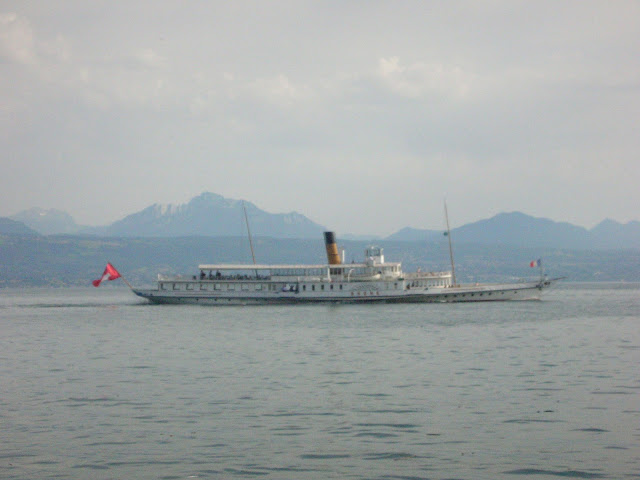A couple of superb wines from opposite sides of the Alps.
Roussette and Dolcetto. Not your usual grapes!
Roussette and Dolcetto are not grapes that immediately spring to mind when talking wine. But here are two excellent examples from opposite sides of the Alps with just a spectacular four hour drive between Alba (Italy) and Frangy (France).
***
Domaine Lupin Roussette de Savoie (AOC) Frangy 2019, 12.5%,
€23.40 64 Wine Dublin, Bradley’s of Cork, Greenman Dublin, Le Caveau Kilkenny
Many of us will not have heard of the Roussette grape previously. Its proper name seems generally accepted to be Altesse (meaning highness). It is indigenous in Savoie and indeed it is grown on high ground there.
Frangy itself, the named cru on the label, is located in Haute-Savoie between Lake Annecy and Lake Lehmann (Geneva) and benefits from a micro-climate favourable to the cultivation of vines.
Colour is a light straw. The aromatics are relatively delicate but with a notable floral complexity. There’s a potent juicy acidity but all is well balanced, with flavours of pear and honey and also a nutty character. It is soft and mellow and more or less full bodied. Quite a mouthful, quite a wine. Very Highly Recommended, especially if you like your white wines on the off dry side (just a little!).
Not altogether a surprise as Altesse is regarded as “perhaps Savoie’s most noble, native varietal”. Another plus factor is that this is a cru, one of sixteen villages in the Savoie, all of which have higher standards than those of the Vin de Savoie AC and Roussette de Savoie AC and may append their name to either of these appellations if their wines meet these higher criteria. One of the best of these crus is Frangy.
 |
| Lake Geneva |
This Bruno Lupin is 100% Roulette de Savoie and Le Caveau recommend pairing it with river fish such as pike or perch, or veal escalope, or even the local Beaufort cheese. Beaufort is one of the great Alpine cheeses and an Irish equivalent is Hegarty’s Templegall (even if Whitechurch hasn’t quite got the altesse of the Alps).
Lupin: “As with many of the vineyards in this region the viticulture is lutte raisonnée. (Minimal use of chemicals, low yields, hand harvested) and the yields moderate (49hl/ha). In the winery some skin contact is allowed for richness of aroma with fermentation at 18-20c, followed by a natural settling of the must, lees contact, and eventual bottling in April the following year.”
***
Ciabot Berton Rutuin Dolcetto D’Alba (DOC) 2013, 13%, €19.25 64 Wine Dublin, Bradley’s of Cork, Greenman Dublin, Le Caveau Kilkenny
Dolcetto is the grape here. Colour is a mid to deep ruby. Aromas are floral (violet) and fruit (cherry), also a hint of spice. Cherries and berries on the juicy palate, with a crisp acidity, light-bodied and refreshing with light tannic streak and a decent aftertaste. Highly Recommended.
From the north-west of the country, Dolcetto is one of Italy’s classic food wines and the producers recommend matching it with cured meats, pasta dishes and white meat dishes while Winefolly.com goes with "richer, darker meats and vegetable dishes with roasted tomatoes, eggplant (aubergine), and garlic”.
Wine-searcher.com tells us: "Those with a grasp of Italian might understandably assume that Dolcetto wines are all sweet. In fact, sweet Dolcetto wines are something of a rarity.”
Wine Folly on the grape: "In Piedmont, Dolcetto’s home, the name means 'little sweet one." Funny enough, wines are generally tart with loads of black fruit flavors and occasionally aggressive tannins". We don't see many examples available in Ireland.
Virtually all of Italy’s Dolcetto is grown in Piedmont and Dolcetto D’Alba is one of the appellations. The Ciabot Berton vineyards lie in the prestigious historical cru of La Morra: Roggeri, San Biagio, Rive, Cappallotti, Pria and Rocchettevino, on the slopes facing towards Alba.
The aim at Ciabot Berton is to produce wines that express their vineyard terroir, unique in each vintage and with the stamp of the family’s way of working. These methods are primarily the use of organic techniques in order to attain and maintain equilibrium and healthy vines.
Already on my next order: Ciabot Berton Barbera d'Alba ‘Fisetta’, also from Le Caveau.


No comments:
Post a Comment